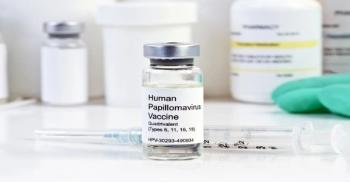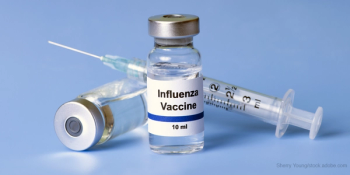
Improving vaccination rates for patients with mental illness
How partnering community programs with medical care may be the key to improving vaccination rates in patients with mental illness.
There are many challenges to caring for adults with severe and persistent mental illness. One is access to routine medical care and preventive services such as vaccination.
The goal of the study, according to lead author Leslie W. Miles, DNP, APRN, PMHNP-BC, associate professor at Brigham Young University, was to increase vaccination rates among individuals with severe and persistent mental illness at an outpatient community mental health center.
“Primary care clinicians and mental health clinicians need to view patients with severely persistently mentally ill (SPMI) as a high risk group. Those with SPMI on average die 20 years sooner and have poorer health outcomes,” Miles said. “Improving health outcomes is multi-faceted and providing vaccines is one of the pieces. It is a truly a tragedy when a patient with SPMI dies of a vaccine preventable disease when they are seeing health care providers more frequently than the general population.”
Researchers developed vaccine clinics at nontraditional sites after assessing vaccination rates in the study population and investigating barriers to care. One of the primary challenges centers on the fact that this population rarely receives routine medical care and therefore lack preventive vaccines coverage in many cases, according to the report.
The study highlights the need for nontraditional vaccination programs for patients with mental health challenges, with program that partner mental health and community healthcare services being particularly effective.
“SPMI patients don't go to health clinics because it is overwhelming to get there, bring insurance information, wait and deal with new health care providers and places that they are unfamiliar,” Miles said. “Programming is as simple as taking vaccine programs to where the SPMI frequent-case management services, outpatient groups, and inpatient units.”
There are a variety of services that can be enlisted to help provide care where these patients need it, said Miles.
“Local public health nurses can provide clinics at mental health access points. Mental health clinicians can promote the importance of getting vaccines, especially yearly flu shots,” she said. “Most states have statewide databases so that accurate medical records are accessible even for the transient population who do not have their vaccination records.
“Healthcare providers need to collaborate for the most effective immunization clinic times and settings,” Miles added. “Providers and staff can get immunizations at the same time, which is great role modeling.”
As highlighted in the study, the research team administered more than 1,000 vaccines in the first eight months of the test program including influenza vaccines; hepatitis A and B; herpes zoster; measles, mumps, and rubella; pneumococcal; and tetanus, diphtheria, and pertussis. Individual vaccination rates for the study group increased during this period from 18.75% to 83%, according to the report, and patients reported a 95% satisfaction rate in their care.
Miles said while it has long been known that there is a significant need for better access to care and vaccination in this population, the results of the study still surprised her.
“I was surprised at how poor the immunization rates are for the SPMI compared to the general adult population and other ethnic groups,” she said. “Persons with SPMI were overwhelmingly interested in learning about immunizations and getting vaccines as a way to take an active role in improving their health.”
Miles said she hopes the report will inspire the creation of similar programs.
“I hope that clinicians work together to provide this basic service and that no person with SPMI needlessly dies from a vaccine preventable disease. I still regret that two of my patients with SPMI died from vaccine preventable diseases before I decided to do something,” Miles said. “It is as simple scheduling the local department health department clinic times and having the mental health facility provide the space, advertising and billing information a few times a year.”
Newsletter
Stay informed and empowered with Medical Economics enewsletter, delivering expert insights, financial strategies, practice management tips and technology trends — tailored for today’s physicians.






